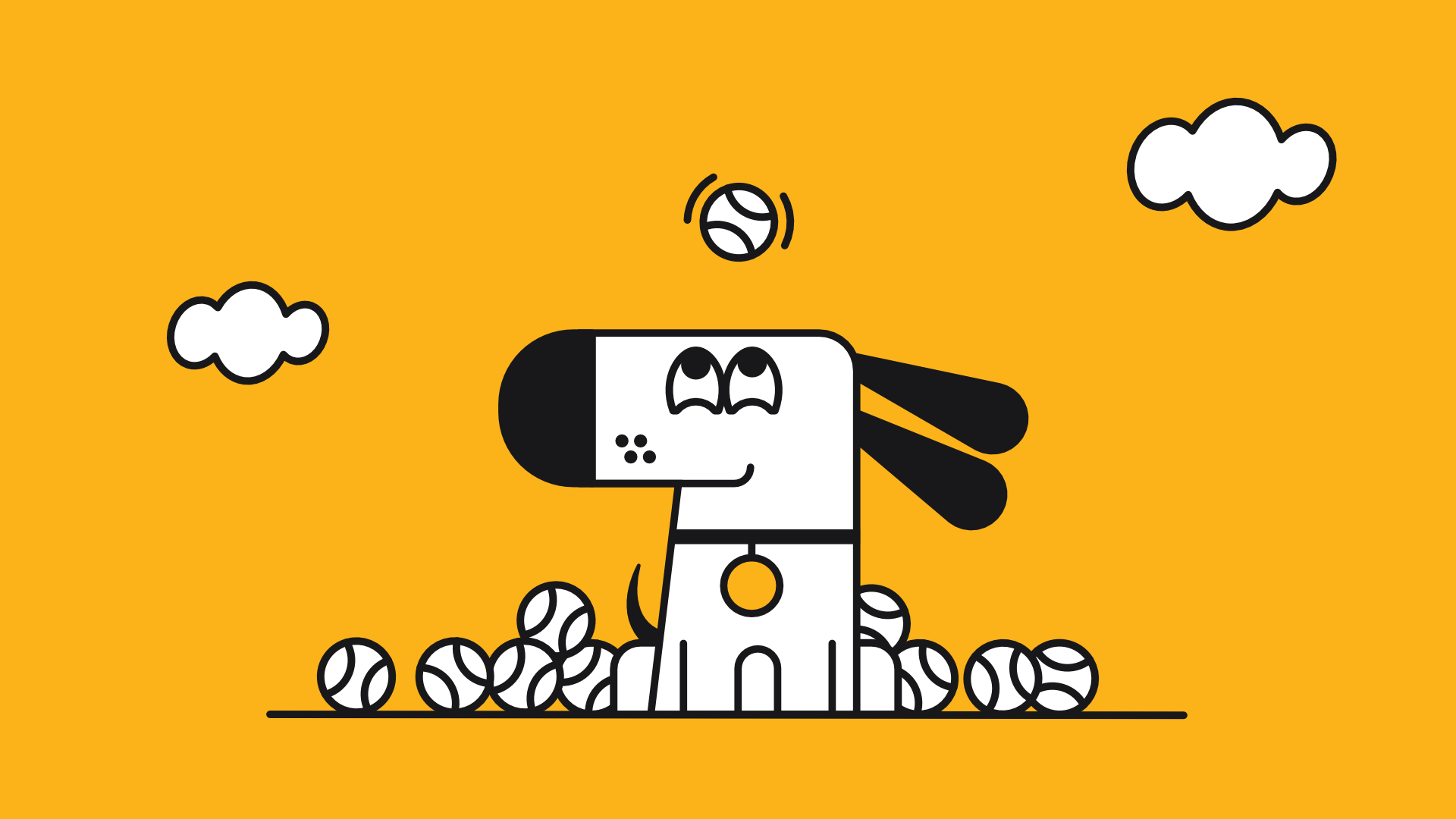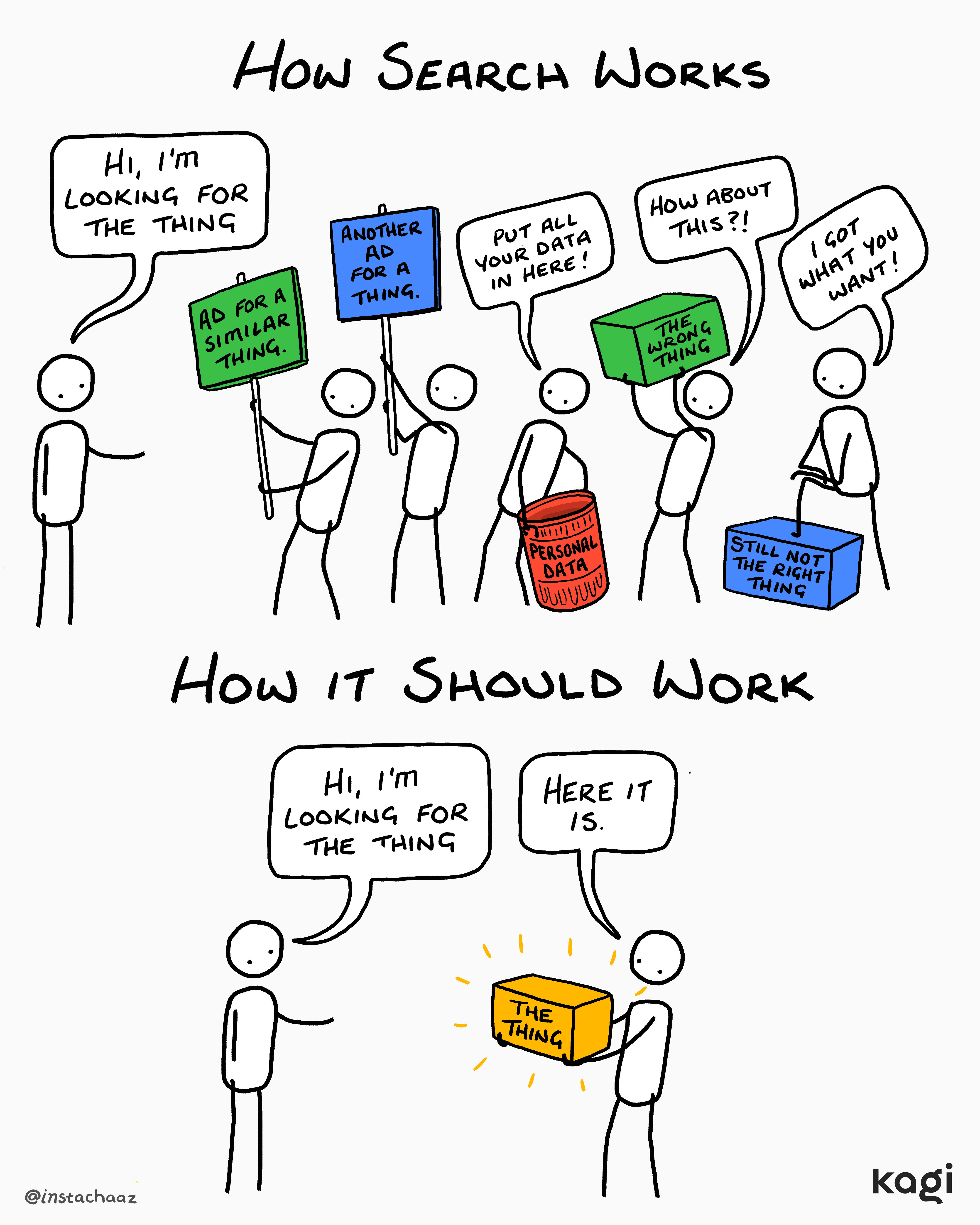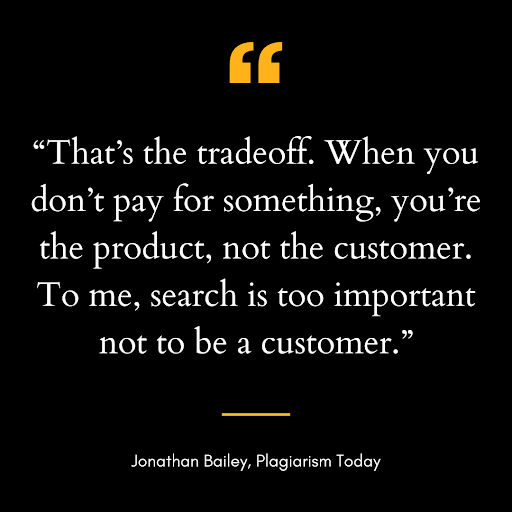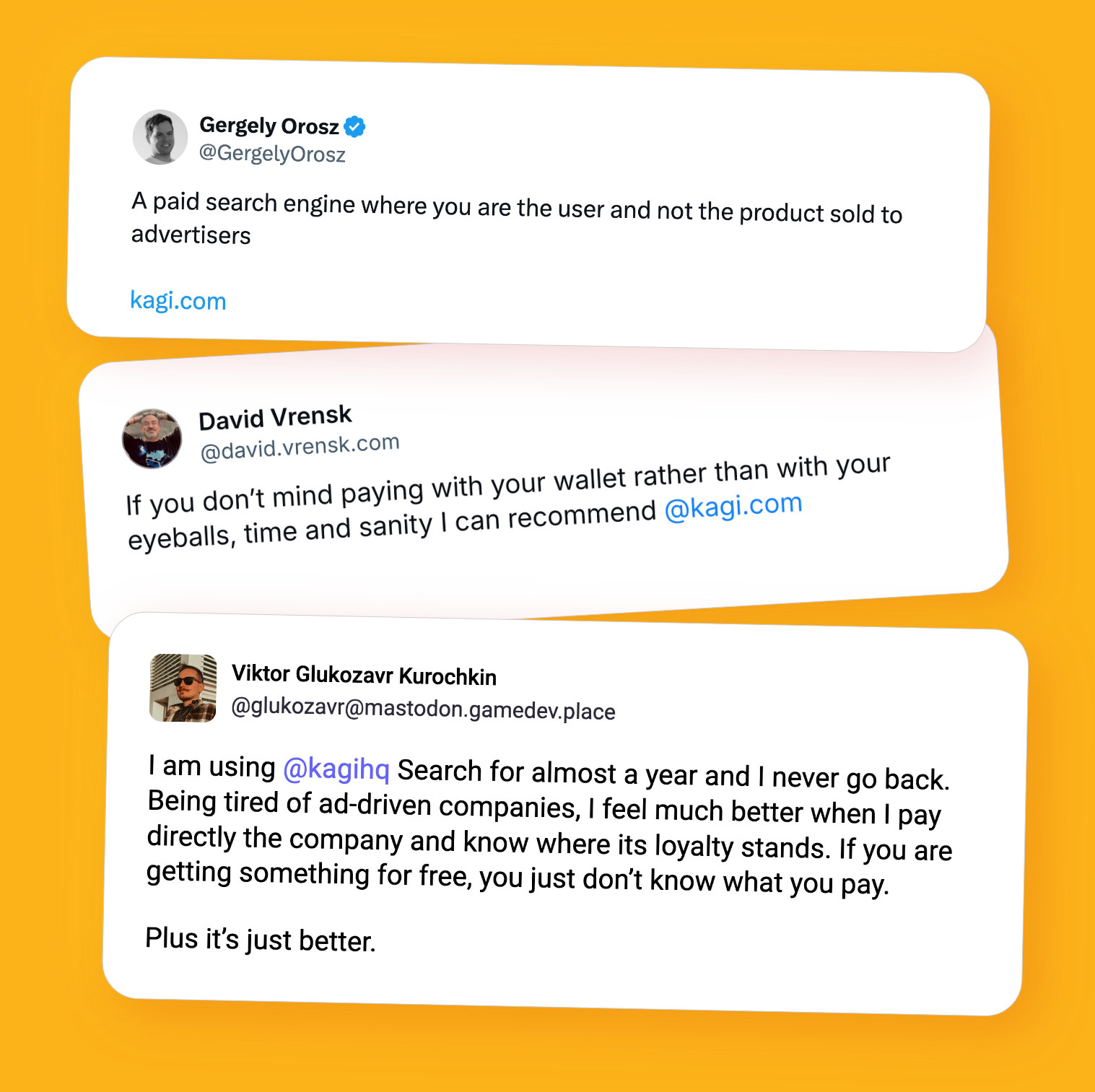The many benefits of paying for search

“Wait, you PAY for search?”
We get this reaction a lot about Kagi. And honestly? We’re not surprised. For 25+ years, we’ve all been trained to think search should be free.
But here’s the thing: free search isn’t actually free. You’re just paying with something else.

The real cost of “free”
Think about your last few searches. How many times did you: Scroll past several ads disguised as real results? Add “reddit” to your search just to get human opinions instead of SEO spam? Feel slightly weird searching for something personal, knowing it’s being tracked and stored? Get frustrated by results that felt absurdly off, like they were optimized for someone else’s agenda? That’s the real cost. Your time, your privacy, and your sanity. Because when search is “free,” you’re not the customer. You’re the product being sold to advertisers and other third parties. Jonathan Bailey said it best when he wrote about why he switched to Kagi:

What happens when you’re actually the customer
Since you pay for the service, Kagi makes money when you’re happy, not when you click on ads or share your data to be commodified. It’s that simple. No conflicting interests, no hidden agendas.
The results? Quality search that actually works for you.

We know that if our users are going to pay for Kagi, it better be worth it, so we don’t stop at private and ad-free. We are constantly innovating to make Kagi better – for everyone.
Our goal is to let you control your search so the answers provided are directly aligned with your needs and expectations. If we do this well, Kagi should fade into the background.
How Kagi keeps you in control of your online experience
1. Surface high quality results
Including from the Small Web, an initiative that is intended to help users discover hidden gems and support the non-commercial web. This helps revitalize and protect a more humane web filled with creativity, personal expression, and valuable content.
2. Customize your search to make it your own
Building a better search engine starts with acknowledging the fact that one size does not fit all and that customization is key. Here are some of the most popular features people use to make Kagi their own. You can find the full list here.
Lenses: When you search on Kagi you can narrow your results by creating a lens, which is a custom list of your favorite websites. For instance if you have a list of websites you prefer to get recipes from, you can create a lens that you re-use every time you search for a recipe.
Filters: You can also search by region, and sort results by relevance, or by the number of trackers on the website, or recency, or by time period. And that’s not all – the advanced search tab lets you refine your search even further.
Domain Ranking: You have complete control over how websites appear in your Kagi search results. For any domain, you can block it entirely from your results, lower its ranking to appear further down, pin it to always show at the top, or boost its ranking to appear higher up. Want to see how the community rates different sites? Browse the leaderboard of top domains users create customizations for.
Snaps: Easily limit search results to a specific website by using the @ symbol followed by a short code for the site and then your search query.
Bangs:Shortcuts starting with exclamation points (!) that quickly take you to search results on other sites.
Redirects: Make modifications to search result URLs with textual find & replace.
And you could also customize Kagi’s look and feel to make it truly your own.
3. Choose whether you want AI to assist you, or not
We keep AI-generated content opt-in only, and give you the option to remove any and all AI generated images by default. And if you are looking for a reliable AI chatbot, we built The Assistant by Kagi which combines the top large language models (LLMs) with optional results from Kagi Search. Try it out here.
4. Promote or suppress specific sites
If there’s a website you know you never want answers from, you can lower or block that domain, and vice versa for bringing sites you love to the top.
We’re constantly adding new features and capabilities for you to control your search experience… with the ultimate goal of making Kagi your most reliable companion for the internet.
If you want to hear from others who made the switch:
"Using Kagi is an absolute joy, but there’s a catch. It costs. The first 100 searches are free. After that, you’re paying for a subscription. Yes, it’s worth it." - Matthew Gault, Gizmodo
"Google is filled with one-click answers but hardly any information or context, while Kagi helps me actually browse the internet." - David Pierce, The Verge
"My view on the actual price is that it’s worth it. I search for stuff every single day, multiple times a day. And I want good results, not ads." - Tim Hårek Andreassen
"With Kagi, you pay for the product using money. That’s it! You give them some money, and you get some service—great service, really, which I’m overall quite happy with." - Lee Hutchinson, Ars Technica
– Kagi Team